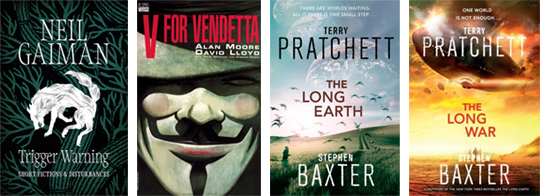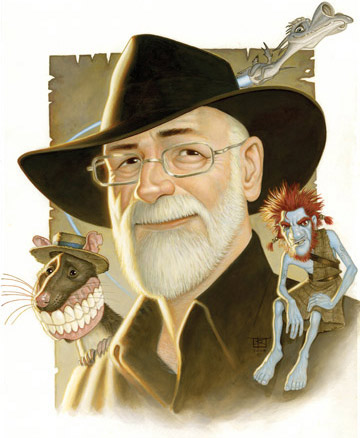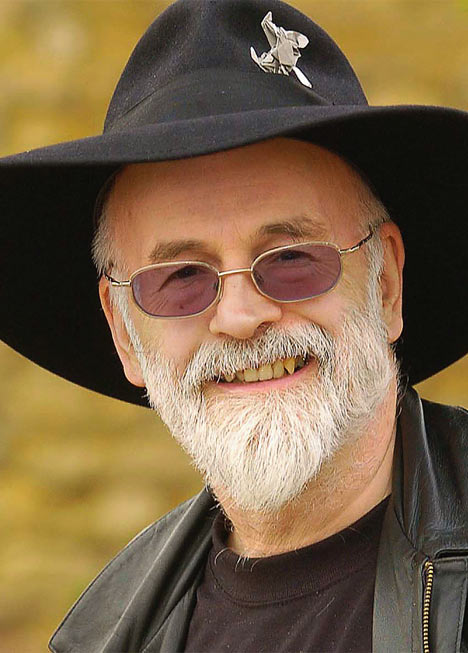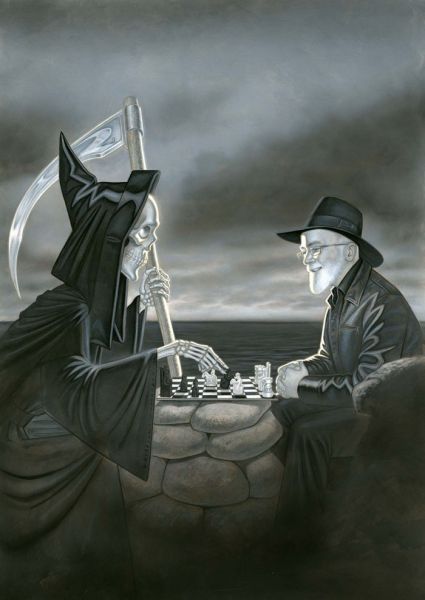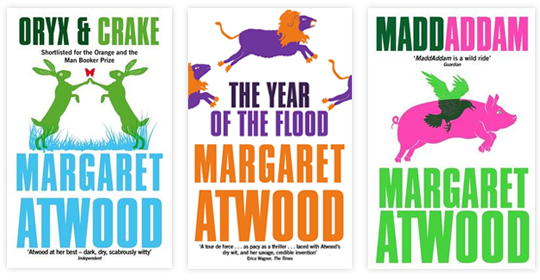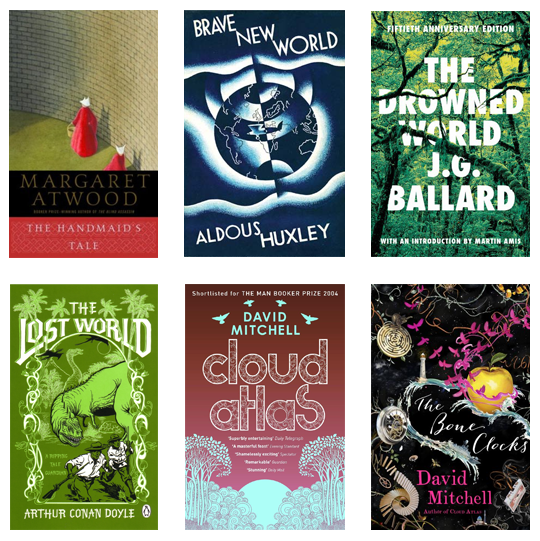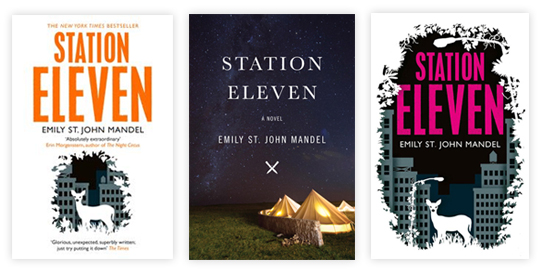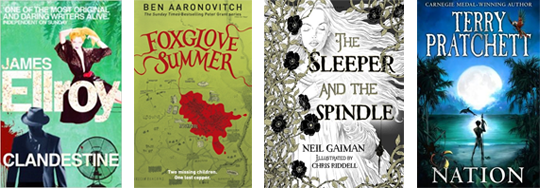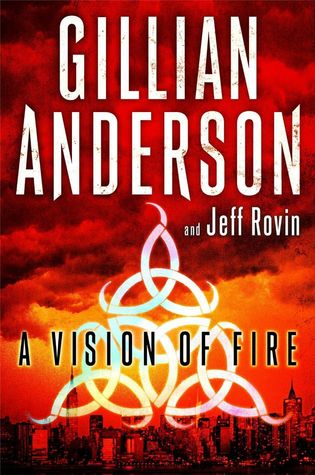Around a year and a half ago I hit a physical low. Five years into a busy office-based job, my life consisted of long, stressful days at the office complete with London commutes from hell, which usually ended with me curling up on the sofa drained of all energy, with a big meal and a glass of wine for comfort. And repeat.
Of course the pounds started piling up. Within two years I’d gone up three dress sizes. I also developed stress-based IBS – the kind where you go to your doctor every two weeks because you’re in too much pain to go to work, and they send you home with the helpful suggestion to just be less stressed at work. Most days my pain was so bad I couldn’t have worked out if I’d wanted to, and looking like six months pregnant from the IBS bloating didn’t help. My usually mild asthma got ridiculous, to the point where I couldn’t walk up the road for ten minutes without struggling for breath. I also caught colds at a rate of one a month.
In short, I felt terrible inside my body.
Then one day in September 2013, I had this thought. A series of thoughts, in fact:
- I am 28.
- I shouldn’t feel this run-down.
- My parents, at 55, are fitter than I am. Hell, my 75-year-old granny can out-walk me.
- And my body is probably trying to tell me something with these chronic illnesses.
The solution, of course, was the dreaded mantra: lose weight and get fit.
A diet was out of the question, because I just can’t not eat full, regular meals. My blood sugar goes all over the place if I cut down or skip a meal. (Yes, I got tested for all that stuff and it’s not diabetes, just metabolism-related apparently). And besides, I wanted more than a quick diet. I wanted a full body and life change.
So I went and got fit.
I started walking to work and back – forty minutes, twice a day. Rain or shine, heatwave or snow: no excuses.
Being as unfit as I was I didn’t even consider embarrassing myself at the gym, so I tried Nike+ Kinect Training for the Xbox. The game is certainly a good starting point for extreme couch potatoes. It assesses you and adjusts to your level of fitness – however low – and gently ups you week after week. And it gives you proper workouts, not the standard sensor-based games of wave-your-arms-and-jump-around-a-bit.
It was hard work. Honestly, it was freaking hard work AND IT HURT. It hurt in every muscle of my body and it hurt in my lungs. But I stuck with it, doing cardio and weight exercises four to five days a week, for at least half an hour each. And within weeks, I could feel it doing me a whole lot of good. The pounds fell off me. Flab tightened up.
By the new year, after three months of Nike+ Kinect Training, I reached a level where the exercises weren’t much of challenge any more. So I shopped around for a new workout.
And what I found changed my life.
Sticking with Nike because I liked their approach, I tried the Nike+ Training Club (NTC) app. It is quite possibly the best app ever made, giving you a ton of free workouts for everything from cardio to serious weights and exercises tailored to specific body parts. It has video instructions for every move, times you and talks you through each workout. I can tell you, with this app, my workouts got serious.

Nike Training Club – easily the best app I’ve ever tried
Within six months of working out with the NTC app three to four times a week, my body changed more than I ever could have dreamed. I got abs. I got a killer waist. I started building muscles all around my arms and shoulders. Fat just disappeared. My whole posture changed: I sat and walked more upright and my whole body was stronger and more energised.
By now I’ve shrunk out of all my clothes, my dress size dropping from medium/large to XS, my waist tightening from size 31 to 26 and, yeah, I also dropped two bra sizes – but tell you what, small boobs suit me just fine! I’ve never felt so happy and at home in my body. Of course shape is a matter of taste (and I do have some friends who now feel the urge to feed me). But as I’m only 164cm (5’4″) tall, I think this is just the right size for me. And another first: I have full body confidence – that’s a whole new world of being me.

July 2014, after nine months of workouts: Hello waist and skinny jeans!

2014 results: core sorted. 2015 goal: sixpack.
But most importantly, I’m healthy.
While I was busy transforming my body, my health improved beyond anything I could have imagined. I even got fit enough to start running, which I had never even considered possible before. It has helped me get leaner and improved my breathing to the point where, after five months, my asthma is now confirmed as ‘under control’. I still get stomach aches after a particularly stressful day at work, but they’re a lot less frequent and severe and a light workout usually deals with the problem. I also haven’t had a cold in more than a year.
Most amazingly, I found that no matter how stressed out and tired I am when I get home from work, a run or a workout will leave me feeling a lot more relaxed and energetic – meaning I can actually do something fun or productive with my evening.
I’m proud of all this because, before I started working out, I hated the very word ‘exercise’. I emphatically did not run and you wouldn’t have caught me dead in a gym. (In fact you still won’t catch me in a gym, because all I need for my workouts is a stretch of road or two square metres of floor space.) But I figured that if I really wanted to make my body better – in the sense of healthier and lasting for a few more decades – I just had to start looking after it.
Now I run five miles twice a week, I do strength and toning workouts twice a week and I eat a load of healthy food, in sensible portions. Getting to this point wasn’t easy – there were many moments when I hated the exercises, hated the pain and hated myself for choosing to do this. But it got easier every week and today I actually crave these workouts; they’re fun and you feel amazing afterwards.
I’m thirty in April and my body finally feels about right for my age. And I’m planning to keep it that way.
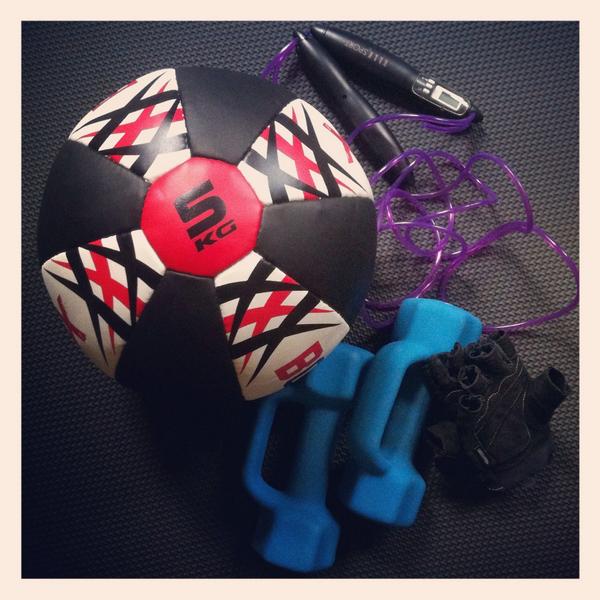
My body + this: the only gym I’ll ever need.
